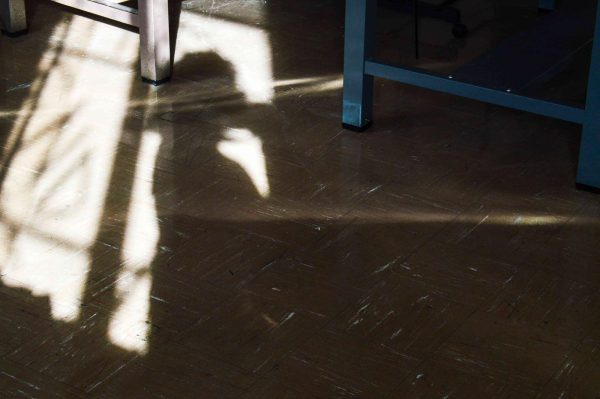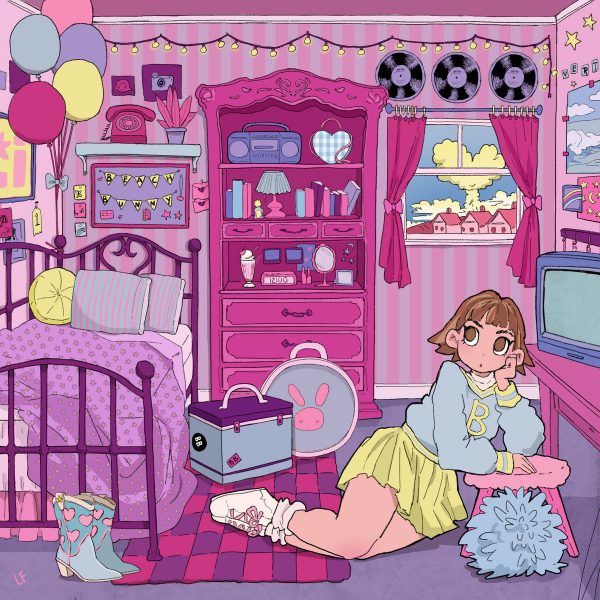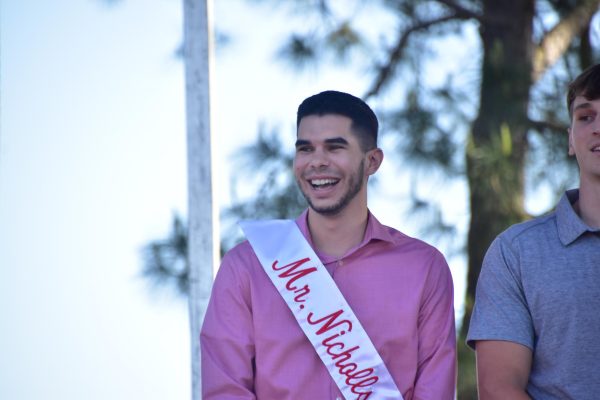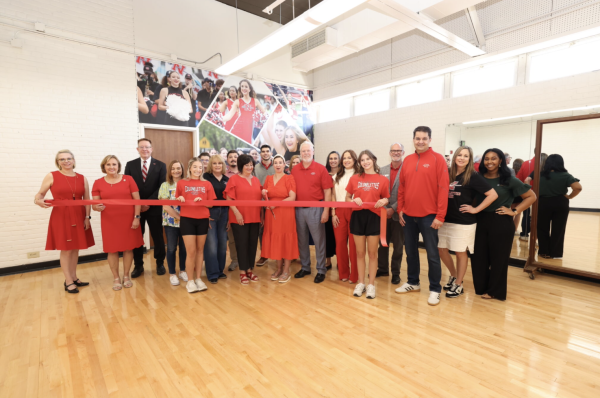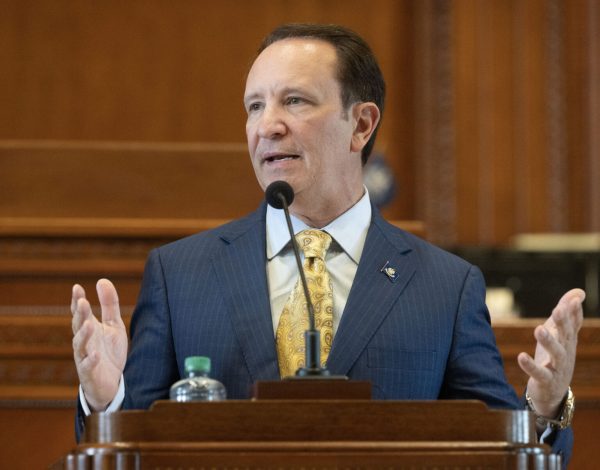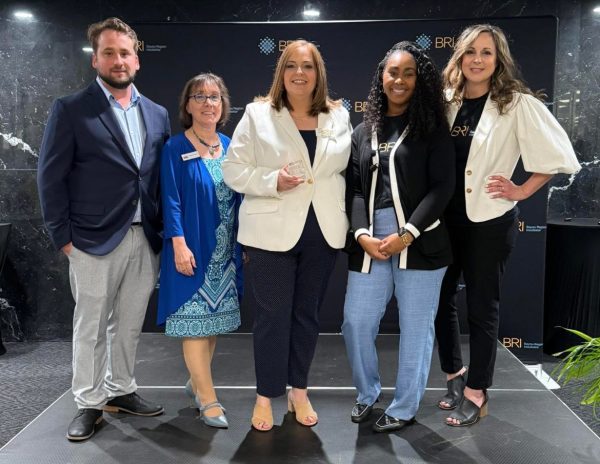Black History Month: Mental Health and Wellness Panel

Spreading mental health awareness in the black community, removing stigma and breaking stereotypes are among the most important topics to discuss this Black History Month. This is precisely why Elnora Parker Vicks, Nicholls State University Counselor and Outreach Coordinator, teamed with the Counseling Center and Student Services to bring eight educated panelists to Nicholls to discuss such issues. The Black Mental Health and Wellness Panel took place Feb. 9 in Mary M. Danos Theater in Talbot Hall from 5:30p.m. to 7:30p.m.
In their fourth annual panel, moderated by Vicks, M. Ed.,PLPC, many important topical issues were discussed in the hopes of dismantling the stigma surrounding mental health in the black community. The panelists included: Tracy Reed, PhD LPC-S; Jawaskie Deal LPC, NCC; Shonda Broom HHP, NHC; Chantrelle Varnado- Johnson, PhD LPC-S, BC-TMH, NCC; Lashawn Lewis, Senior C.R.O.W.N Mentor, Sade Verdin, MSW; Gary Dupree Jr. LPC, NCC; and Greg Reed, Entrepreneur.
The panelists came together to provide a better understanding of how society can aid in addressing mental health and wellbeing in the black community, as well as implement resources or services. Overall, the main discussions covered topics such as: the black community’s overwhelming mistrust of the healthcare system, the stigma around mental health concerning black men and women, and how the black community can continue to evolve, both by their own actions and the actions of others.
When it comes to health and wellness, many in the community have experienced barriers in getting the adequate care they require. Whether it be the inaccessibility of providers they feel most comfortable with, or the fear of not being taken seriously, there are many reasons for the disconnect of seeking help in the black community. Most of the panelists agreed it is a result of historical trauma and survival instincts passed down from generation to generation, such as suppressing one’s emotions and never getting the help they truly need. In the black community, many people feel the need to be resilient and strong—a phenomenon largely due to stereotypes and how black mental health is depicted in the media. Other panelists brought up equally valid points about how the black community often has a problem with unity and allows too much space for negative influence. Not to mention, many in the community also have trouble accessing the information they need, so they never really know what is available to them. A lack of education and engagement is hindering the progress of black welfare. Resources must continue to be available, and active involvement must be present. As the panel quoted, “If we know better, we do better.”
While it may be considered a nuanced question, the panelists shared some valuable insights when asked how the mistrust in the medical industry affects the black community. With systematic racism and a lack of representation in the mental health field specifically, the black community is put in a position where seeking help can feel like a burden. Even though many individuals in the community may not have had negative experiences themselves, simply hearing about a negative encounter can add to the collective mistrust the community shares. While the best way to fight an illness may be to prevent it, the panelists point out that prevention is not always an option when dealing with severe mistrust. Statistics of mental illness continue to be higher in the black community than most others, and it is even the studies themselves that further discourage people from getting help. “What we research shuts us down,” the panelists agreed. There are few black mental health professionals spread across the region that cannot possibly take on every single client alone. Hearing from one professional that they are too booked up can create even more doubt in the system. It is vital for the black community, as a collective, to decide to become the professionals who dismantle this mistrust. It should be a priority to advocate for black mental health.
One of the main dilemmas constantly discouraging those in the black community from getting help is the stigma. Stigma specifically affects black men and their ability—or rather, inability—to healthily express their emotions. The negative impact of not expressing their emotions can leave them with built up frustrations that often lead to drug and alcohol abuse. The influence of social media, along with conscious and unconscious biases, also add to stigmatization of black mental health. The fact of the matter is, just last year, a study was conducted and resulted in about sixty three percent of black people stating that they believe mental illness is a sign of weakness. It is this belief that results in many turning to petitions and barbers, to faith leaders and family members, before ever seeking a mental health professional. The black community takes pride in being strong, but the question is: when does it become too much? Most decide to throw any mental illness under the umbrella term “crazy” which promotes all sorts of negative connotations. The truth is that many in the black community are in desperate need of mental help, especially with every social injustice spread wide by the media taking a toll on each individual’s mind. Mental health professionals should begin to individualize treatment, stay current on events, and create a space where people feel safe to “remove the mask they have been wearing and heal in order to thrive”.
Panelist Reed sums up her idea of how the black community’s ideas of wellness have evolved by the simple statement: “Yeah, but–”. While there was once a time when many stayed completely silent about mental issues, now progress is being made—as can be seen by the panel having this discussion—and there can always be more. Progress is blossoming within the black community when it comes to discussing emotions, but there is always more work to be done. Most of the panelists agreed it has a lot to do with different generations, believing that younger generations are more comfortable being open about their mental health. It is a wonderful thing to have black people in popular industries using their platform to talk about mental health. They can carve a path for the next generations to grow up openly discussing their trauma and emotions.
“Five years ago when I talked about meditation as a way to cope with anxiety and mental illness, I was viewed as crazy. Now, especially the younger generation, are a lot more comfortable with talking about these things. I do see a change.” Panelist Broom shared.
C.R.O.W.N. mentor, LaShawn Lewis, talked about his brothers in C.R.O.W.N., and how inspiring it is for a group of black men to share their traumas and emotions so openly. It is heartwarming to think of how this practice is something they will lend down to their children, and ultimately promote a safer space for the black community in the future. As a collective and as a society, we must work on changing the dialogue surrounding black mental health.
The last topic the panelists discussed was how they, as mental health professionals, could work on creating and promoting a safe space for the black community. Panelist Reed stressed the importance of being able to be “vulnerable without resistance”.
“I have been helping people since 1999, but the first time I decided to go to therapy myself was last July. That’s a long time to be ‘just getting by’. It is my personal belief that everyone should go to therapy.“ Reed shared.
Panelist Deal pointed out that no one is immune to the trials and tribulations of life. It is okay to not be okay and that point must be stressed. By having simple, open conversations, and being unafraid to be “unapologetically black” as Panelist Varnado- Johnson put it, safer spaces for the black community may be created. There is value in being authentic and genuine. Professionals in the mental health field should be capable of sharing their experience and holding space for those whom their story resonates with. The black community is actively looking for these safe spaces.
It is consistently important to continue to put information out and make resources available. Feb. 9 from 10a.m. to 2p.m. in the Quad, a mental health and wellness resource fair was held, handing out information to the black community, therefore creating this safe space. The fair featured on, and off, campus resources, as well as giveaways and refreshments. Nicholls State University is interested in keeping up the conversation and promoting the progress of mental health and wellbeing in the black community. This Black History Month—and National Counseling Week—consider making yourself available for your strong friends.

My name is Evan Elizabeth Cressoine. I’m a junior here at Nicholls, from Houma, studying creative writing. Above all, I am a storyteller. I’ve been...



